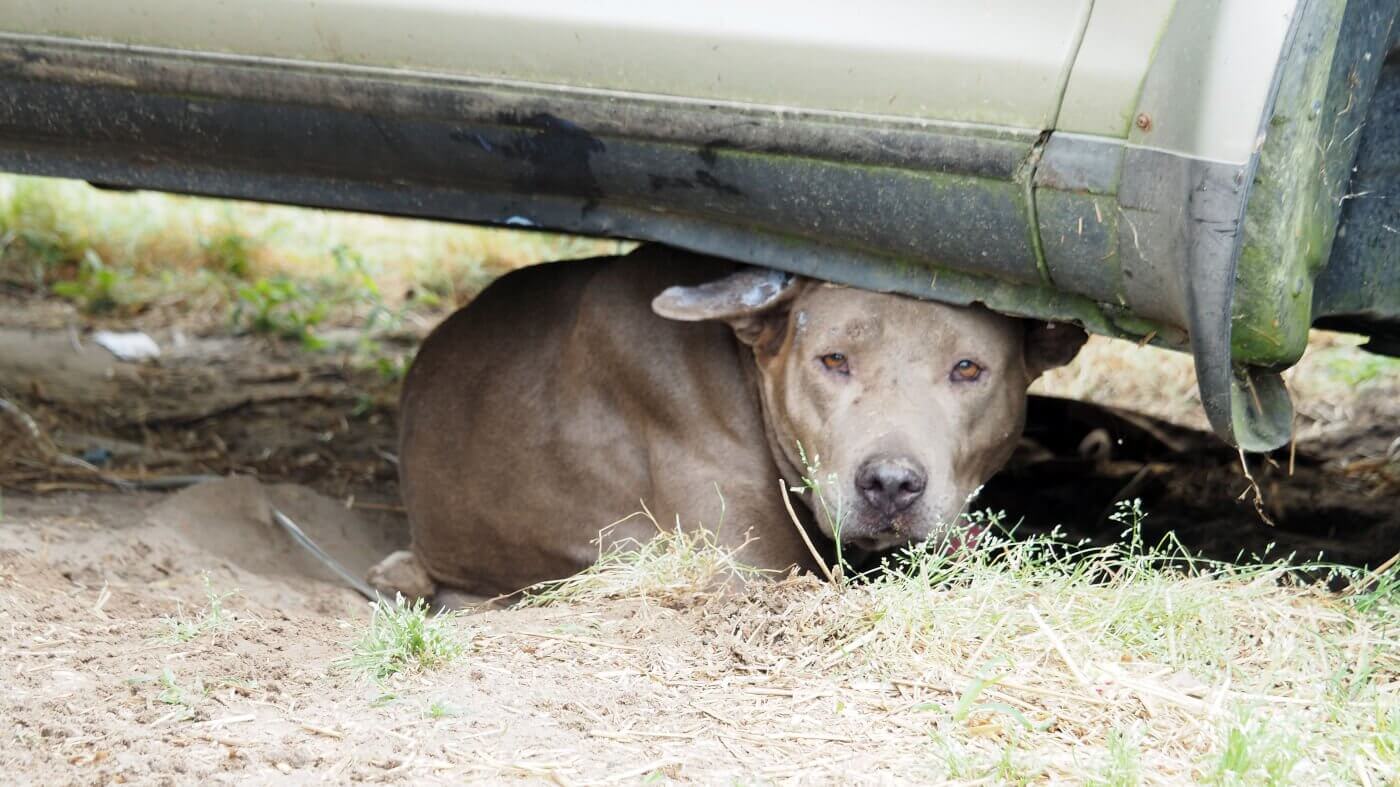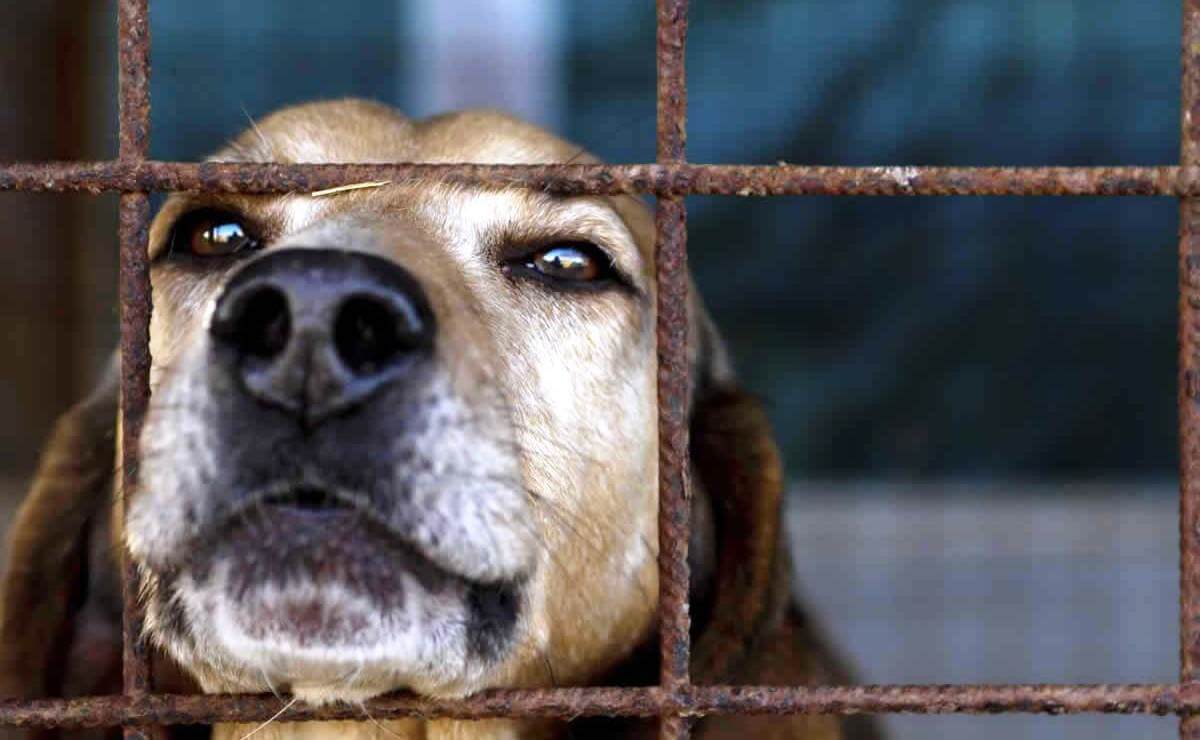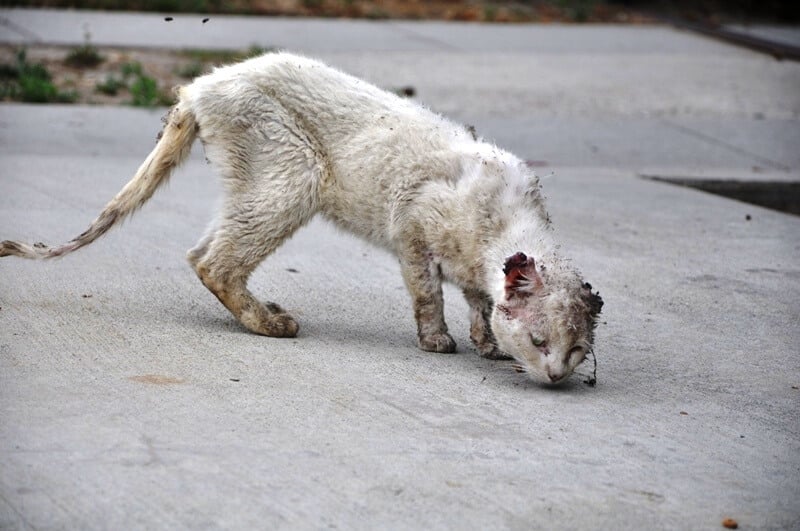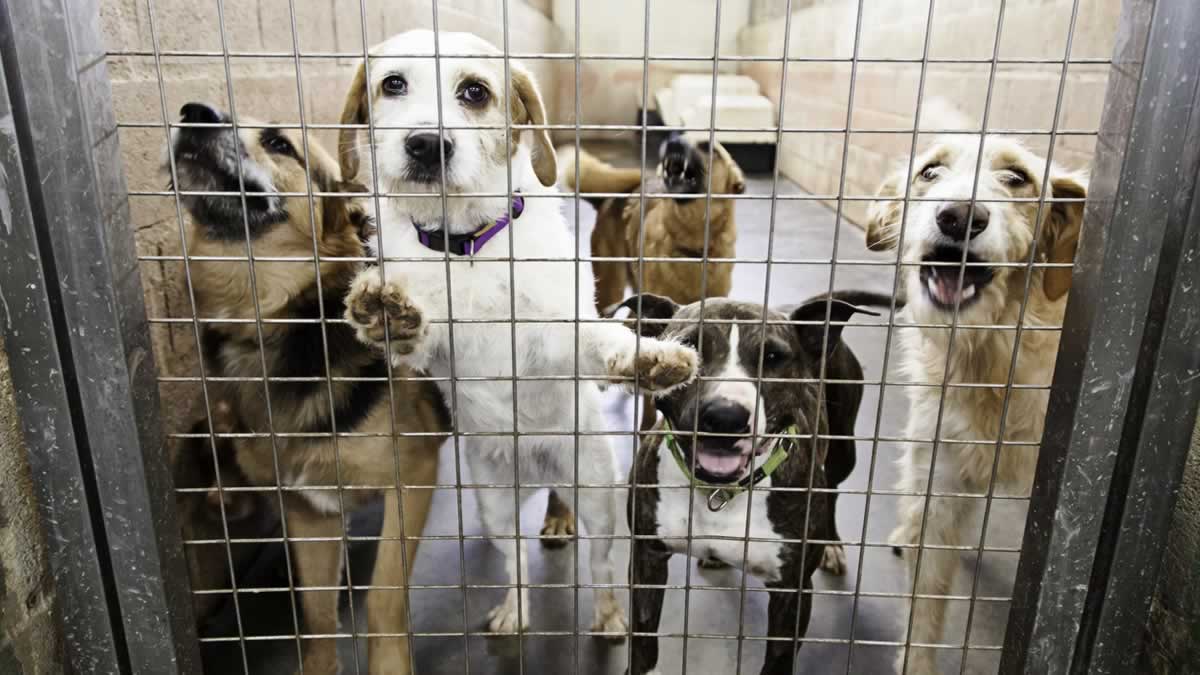Observe International Homeless Animals Day by Taking Action With PETA
August 17 is International Homeless Animals Day, and PETA is calling on everyone to go the extra mile to spread awareness of the approximately 70 million homeless dogs and cats struggling to survive on any given day in the U.S.
The homeless dogs and cats who spend each day fighting for their lives are struggling largely because of people’s failure to have their animal companions spayed and neutered, resulting in the births of more puppies and kittens into a world that doesn’t have enough loving homes for them. And because people continue to buy dogs and cats when millions of others are homeless, breeders continue to churn out litters to make a profit.

Why Observe International Homeless Animals Day?
Dogs and cats are domesticated animals who depend on humans to provide them with food, water, veterinary care, shelter, and safety, and they can’t survive for long without us. Because facilities with “no-kill” policies turn many animals away, more and more are ending up on the streets, where they reproduce and create even more homeless animals. Using COVID-19 as an excuse, many animal shelters are limiting intake of dogs and cats, even though folks sometimes have no other option. Some shelters are delaying taking in strays, diverting them, and even refusing to take them in at all. That means animals are being abandoned and essential services like spaying and neutering aren’t being done. This inhumane and irresponsible approach is causing more animals to suffer and die.
We’re not only raising awareness of the millions of cats and dogs who are left to fend for themselves on the streets or waiting in a shelter for someone to love them but also spending this day charging forward and making headway in the fight to address the companion animal overpopulation crisis and prevent the suffering that it causes.

How to Help Homeless Animals and Prevent More Suffering
Like any problem that has a chance of being resolved, we must tackle this crisis at its root. That means always having animal companions spayed and neutered and helping others get their animals “fixed,” too. An estimated 70 million dogs and cats are homeless in the U.S. at any given time, so preventing more animals from being born into a world that has no place for them is crucial.
It’s vital that people adopt animals from shelters and never buy them from breeders, pet stores, or anywhere else. Breeders bring more animals into the world, killing homeless dogs’ and cats’ chances of finding a loving home. Fostering animals, volunteering at local shelters, and donating bedding, food, and toys or encouraging kids to make toys for dogs and cats are other great ways to help.

What PETA Is Doing to Address the Problem
Our diligent efforts to inform the public about the homeless-animal crisis and the importance of adoption and sterilization include low- or no-cost spay/neuter services (performed on more than 63,000 animals in the last five years alone), billboards in underserved areas, celebrity campaigns, and undercover investigations. Our field team delivers much-needed supplies such as dog and cat food to guardians fallen on hard times, grooms dogs covered with matted fur, and provides doghouses as well as heartworm, flea, and flystrike preventatives. We also transfer adoptable animals to busy adoption centers.
But organizations like PETA can’t fix the problem alone. Only about 10% of the country’s homeless-animal population is actually taken in by animal shelters each year. The rest of the animals are out there somewhere, struggling to survive on mean streets where they may be hit by cars, be attacked by other animals or cruel people, freeze in the winter and suffer from heat exhaustion when temperatures soar in the summer, or suffer and die from diseases, infections, parasites, starvation, and other conditions.

Why You Must Take Action for Homeless Animals
Animal shelters take in more than 6 million animals every year, many because their guardians can’t afford euthanasia services at a veterinary hospital. Guardians also surrender animals who need veterinary care that they simply can’t afford. Of the millions of animals who enter shelters each year, about half must be euthanized for humane reasons or because not enough suitable homes exist for them.

Each one of us must do our part to end the overpopulation and homelessness crisis. If you see a dog or cat who hasn’t been spayed or neutered yet, talk to their owner. If someone you know is talking about buying a dog, persuade them to adopt instead. Let’s celebrate the next International Homeless Animals Day by eliminating the very need for it.

